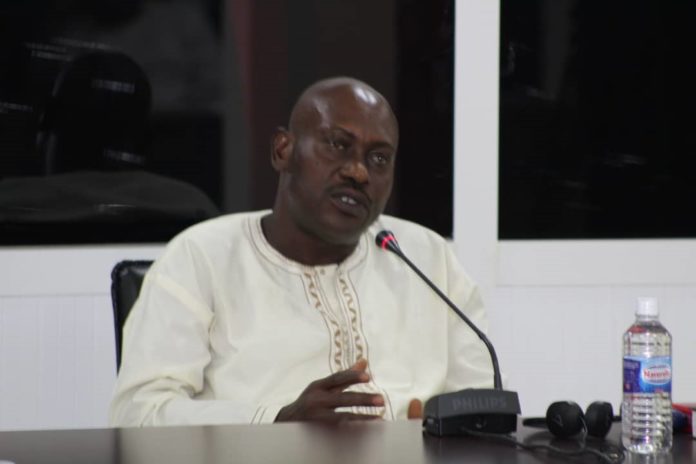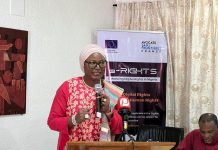By Yankuba Jallow
Bruce Asemota of The Point Newspaper while testifying before the TRRC, gave a detailed account of his ordeal under the hostile regime of Yahya A.J.J. Jammeh, a former President of The Gambia.
He was born in Benin City in the Federal Republic of Nigeria. He did his primary, junior and senior secondary education in Nigeria and began his journalism career in his country of birth.
He said he wrote an article with regards to a demonstration by students of a university in Nigeria about the depreciation of the Naira. He added that the government then wasn’t appreciative of the write-ups. He told the TRRC that one of his colleague journalists was shot and fell in his presence.
The 53 – year- old told the Truth, Reconciliation and Reparations Commission (TRRC) that he was practising journalism in Nigeria and decided to flee because of the intimidating environment for the press under the then military regimes in his home country, Nigeria. He said he fled Nigeria because of the unfriendly environment under the leadership of General Baba Ngida adding that he went to Ghana, Burkina Faso and Mali before finally coming to The Gambia. He said he arrived in The Gambia in October 1991.
In the Gambia, he worked with the Daily Observer, The Point and the Independent. He said on 6th May 1996, he wrote an article about the shakeup in The Gambia Police Force on the Daily Observer, but the then IGP, F.R.I. Jammeh was not happy with the report. He said the police chief was astonished by how he got the information and published it. He said as a result of this report, he was arrested by plain clothes police officers at the Observer premises. He added that he was forcefully taken away to Banjul.
“They did not tell me why they arrested me and when I arrived in Banjul. I was placed in one of the cells there,” he said.
He said he spent 21 days at the cell at the Banjul Police Station. He said while he was under detention, he was asked the source of his information but he declined to disclose their informant. He said there was an ongoing process to deport him to Nigeria which did not materialize, adding that he was visited by the Nigerian High Commissioner to the Gambia. He said Lamin Kaba Bajo, the then Minister of the Interior swore to an affidavit to secure his deportation. He said when he was being released, FRI Jammeh warned him to stop writing about the police.
He said as a result of this, he became a court reporter because he did not want to have any more confrontations with the police. He said sometime around July 1996, he was arrested for writing a story about the court threatening to discharge an accused person if the prosecution cannot come with their witnesses on the next adjourned date. He added that he was brought before F.R.I. Jammeh who said he wasn’t happy with the report. He said the trial Magistrate, Musa Gassama drove to the police headquarters when he was told of his arrest to inquire why he was arrested. He added that he was released on the same day when the Magistrate told the police that the story was factual.
He said he came into confrontation again with F.R.I. Jammeh when he reported that a magistrate ruled that a police officer who was brought before him cannot be punished twice for the same alleged offence. He said the police came looking for him at the Daily Observer. He added that the trial Magistrate B.Y. Camara called him in his chambers and called F.R.I. telling him that the story was accurate.
“For some days I went into hiding. I was worried and my office was worried but thank God I was not arrested,” he said.
He said he fled to Guinea Bissau after he was advised to run for his life by a police informant. He said while in Bissau, he wrote an article about arms trafficking.
He said he came back in June 1998 after F.R.I. Jammeh was removed and replaced with Sankung Badjie. He said he continued writing using pen-names to the various newspapers that he was writing for his personal safety; so that the police wouldn’t know who authored the stories.
He is now the main court reporter for The Point Newspaper and their correspondent covering the proceedings of the TRRC. He said he loves writing and this motivated him to becoming a journalist.

















